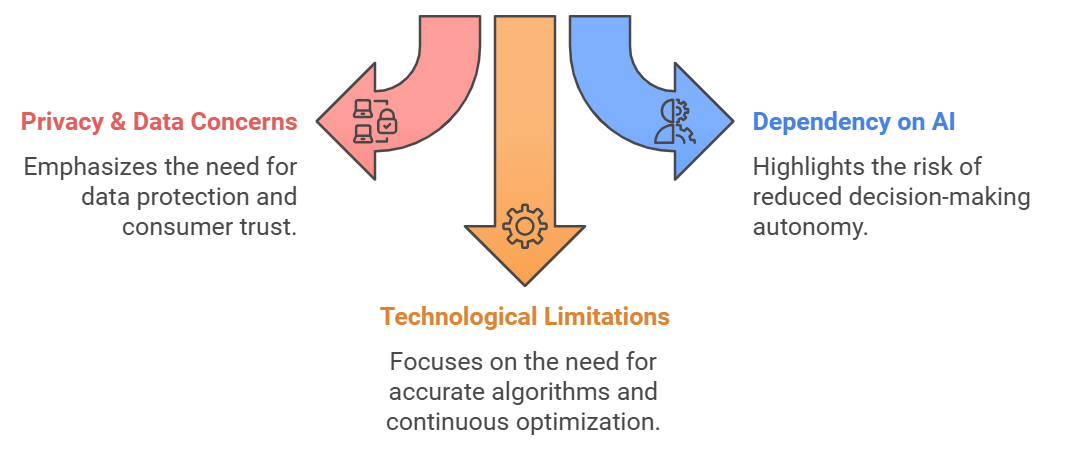The Future of Shopping: How AI Agents Are Changing E-Commerce

Just think of having an electronic personal assistant who also has memory on your part and goes shopping for you. This article takes you through the newest invention in the technological field of e-commerce shopping, which we call the AI shopping agents. With tech giants keenly stepping up efforts to create these intelligent systems, nothing could be as valuable as this. For consumers, this translates to targeted marketing and fantastic convenience; for retailers, this is the real world where the marketplace is changing. AI shopping agents are not just a trend, they’re shaping the future of online shopping.
Curious about how AI agents are reshaping the future of online shopping? Read on to explore their game-changing features and benefits. Don’t miss out—subscribe now to stay updated on the latest trends in AI and e-commerce!
What Are AI Shopping Agents?
AI shopping agents are AI-powered tools that are labeled as intelligent helpers in the sphere of e-shopping. It helps the consumers by undertaking activities such as a comparison of the price, recommending products based on consumers’ preferences, and completing the most crucial stage of the purchase process, which is checking out. These agents employ well-developed search algorithms to understand the interests of the user as well as his/her buying trends and offer customized shopping solutions quickly.
Examples of AI Shopping Agents in Action
Current examples are Converse AI plugins of OpenAI’s ChatGPT for product recommendations in a natural conversation, new forms of product search with Bard integrations from Google, and Amazon Alexa that supports voice purchasing. For example, Alexa can order items bought most often or bring offers, which people can see manifest both convenience and personalization at work. AI shopping agents revolutionize how consumers patronize online stores and improve the customer experience.
Why Is the Race Heating Up?
AI shopping agents are becoming more competitive as customer needs increase, and companies continue to develop new effective business solutions. The trend of consumer behavior extends to convenience and even personalization; it goes hand in hand with the AI function. It is technologies like Natural Language Processing (NLP) and machine learning that are out-front to make online shopping as easy as ABC. Already we see major players such as Amazon, Google, OpenAI, etc, along with the new generation of digital businesses aspiring to capture this region. AI shopping agents tap into modern consumers’ behavior to redefine aspects of engagement and trust between the user and the e-commerce site. This competitive environment, therefore, is redesigning the future of retail to meet new expectations.
Benefits of AI Shopping Agents for Consumers

Time Efficiency
AI shopping agents streamline the shopping experience by automating product searches, comparing prices, and finalizing purchases. This saves consumers valuable time, reducing the need for manual browsing across multiple platforms.
Smarter Recommendations
AI shopping agents utilize advanced algorithms to analyze browsing and purchase history, offering personalized recommendations. These tailored insights help consumers find products that align with their preferences and needs effortlessly.
Cost Savings
By identifying the best deals, discounts, and promotions across various platforms, AI shopping agents empower consumers to save money. This ensures users make informed purchases without overspending.
AI shopping agents provide unparalleled convenience, making them an indispensable tool for modern consumers seeking efficiency, personalization, and savings in their online shopping journeys.
Challenges and Concerns with AI Shopping Agents

Privacy and Data Security
They have greater concern about privacies and data security as embraced by using AI shopping agents. Customers’ use of AI systems to share personal and financial data is vulnerable to violation and abuse. Consumer trust is critical for growth, and one must obtain and maintain valid encryption and become data protection law compliant.
Dependency on AI
Increased usable expertise in the utilization of AI purchasing agents influences decision-making which ultimately leads to overdependence. It may decrease rationality and restrict customers’ freedom as a strong reliance on AI-based services replaces individual decision-making.
Technological Limitations
All the same, there are several inconveniences associated with the usage of AI shopping agents. Inaccurate information and unreasonable algorithms may lead to misleading or prejudiced recommendations that harm shopping. These challenges require that one offers continuous optimization.
The Future of AI in Online Shopping
Evolving Capabilities
AI shopping agents are transforming online shopping by predicting customer needs before they arise. Leveraging advanced algorithms, they offer personalized recommendations, saving time and improving user experiences.
Integration with Smart Devices
AI shopping agents integrated with smart assistants and IoT devices are simplifying shopping. Voice commands and automated reordering make the process faster and more convenient.
Broader Industry Impact
AI shopping agents are reshaping retail by automating customer service and enhancing interactions. They streamline support and redefine retailer roles, creating seamless, loyalty-driven shopping experiences.
What This Means for Retailers and Marketers
Opportunities with AI Shopping Agents
It was also seen that retailers need to align with AI shopping agents to increase their growth rate. From these platforms, customer engagement is improved through recommendation systems and optimized shopping experiences which lead to increased satisfaction and call to action.
Using the AI shopping agent's data, businesses can also cut down on stock problems since they are provided with the decision-making data on demand. It also means that through the correct definition of audiences, marketers can work on honing where their money is being spent on the advertisements, hence enhancing the advertisements’ overall ROI.
Adaptation Strategies for AI Shopping Agents
To succeed, retailers must prepare for AI-powered customer interactions. This involves training teams to manage AI systems and establishing ethical AI policies that prioritize customer trust and data privacy.
The Final View
It is emblematic of a march toward AI shopping agents that are changing the way consumers shop online by providing advice and simplifying the path toward purchase. The use of these contributes heavily to the aspect of changing and improving with the added convenience and personalization of shopping experiences.
Nevertheless, the need for AI shopping agents is growing rapidly, which requires an even paradigm that can stimulate the development of substantive breakthroughs in this area while taking into account such promising problems as the protection of users’ data and their rights.
That is why as AI shopping agents develop they are changing not only e-commerce but a generation of consumerism that is intuitive, efficient, and responsible.
FAQs:
1. What are AI shopping agents, and how do they work?
AI shopping agents are tools that use artificial intelligence to find deals, recommend products, and automate online purchases.
2. How can AI shopping agents save time and money?
They save time by automating searches and money by finding the best prices, deals, and discounts online.
3. Are AI shopping agents safe for online shopping?
Yes, most AI agents use secure systems, but always choose trusted providers and avoid sharing sensitive details unnecessarily.
4. Which companies are leading in AI shopping agents?
Companies like Amazon, Google, and OpenAI are leading in developing AI agents for smarter online shopping.



